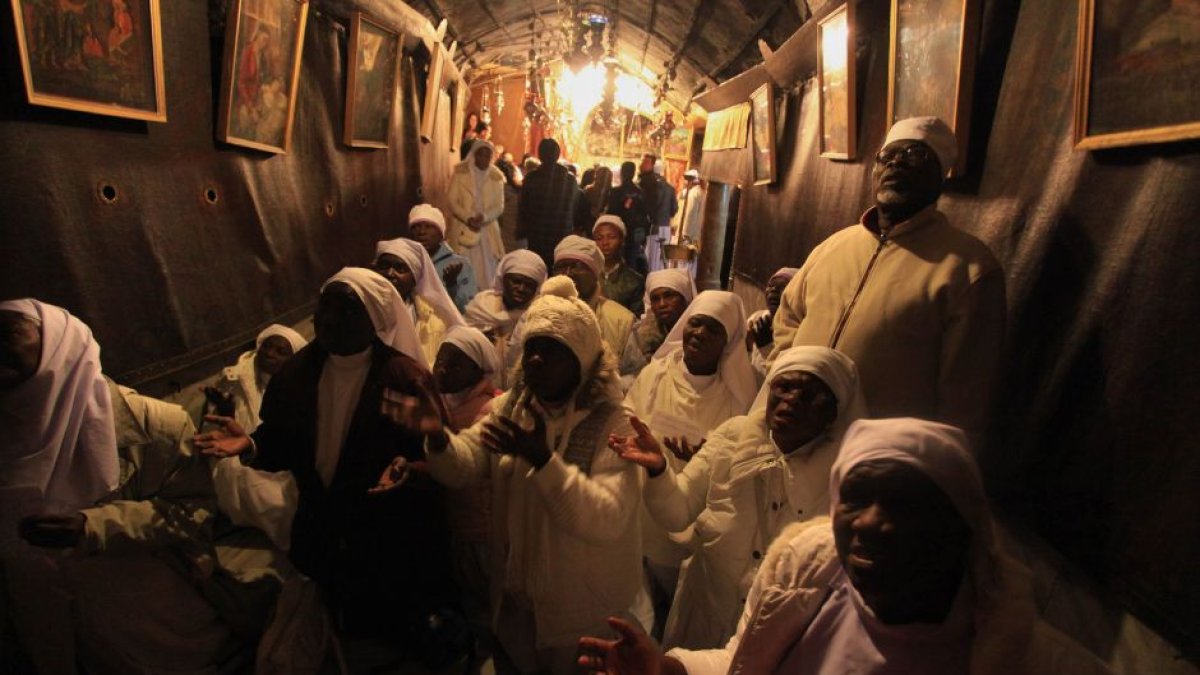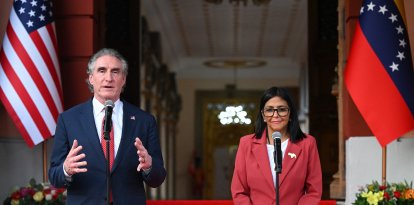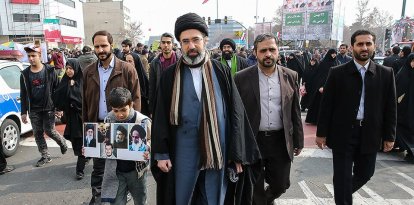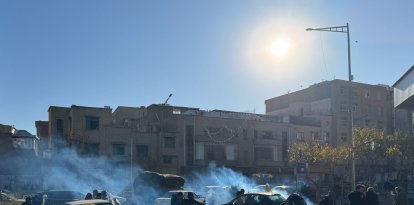Anti-Christian persecution worsens before Holy Week
Christian organization Aid to the Church in Need claims that life for followers of Jesus is becoming increasingly complicated throughout the world, including the West.

Cristianos rezando en una foto de archivo. (Cordon Press)
Jesus announced in the Gospel that "the Son of Man has nowhere to lay his head." Twenty-one centuries later, this phrase perfectly applies to his followers, persecuted throughout the world, in more and more countries and in increasingly aggressive ways. Although Asia and Africa notably lead the countries where life is most difficult for the Christian faithful, in the Americas, Mexico, Cuba, Colombia and Nicaragua are among the 50 countries where there is the most anti-Christian persecution. In the U.S., several Christian organizations and the Republican Party have condemned the use of the Department of Justice and the FBI in an anti-Christian crusade while attacks on churches multiply.
The murder and harassment of Christians has continued, and new and terrible episodes have been experienced since October 2023, the date when latest reports from several main organizations that track this data were published. Between Dec. 23 and 26, at least 170 Christians were killed in Nigeria following a coordinated attack by Fulani militiamen against Christian communities in 26 villages. In January, some 200 followers of Christ lost their lives at the hands of radical Islamists in this country. In Burkina Faso, 15 people were killed by gunmen who stormed a church in February. This same month, in Mozambique, the Islamic State boasted of having burned four churches and more than 140 Christian shelters in less than a week to intimidate the faithful and force them to abandon their homes.
In India, the United Christian Forum (UCF), which defends the rights of Christians in the country, claimed that state's persecution and violence against the Christian minority is on the rise. Between January and March, more than 160 attacks and 122 arrests were recorded. In addition, some states prevent Christian minorities from accessing water from community wells.
'Culture of impunity'
Open Arms claims that more than 365 million Christians suffer persecution or are discriminated against for their beliefs around the world. Of them, 317 million people suffer at "very high" or "extreme" levels in just 50 countries that occupy the most prominent places in terms of hatred against followers of Christ.
According to Aid to the Church in Need (ACN), the situation is even more serious when it comes to religious freedom in the world. This organization's annual report last year indicated that 4.03 billion people living in 28 countries are at risk of persecution for their beliefs. The study, directed by Marcela Szymanski, also indicates two worrying trends: the silence of the international community in the face of these events, which is developing a "culture of impunity" in transgressive states and communities and the increase in majority religious communities persecuted in certain countries.
Cancel culture, danger for Christians in the West
Furthermore, ACN speaks of a worrying double reality for believers depending on the part in which they live. Thus, on the one hand, "the retention and consolidation of power in the hands of authoritarian governments and leaders of fundamentalist groups has caused an increase in violations of all human rights, including religious freedom. The combination of terrorist attacks, destruction of heritage and religious symbols (Turkey, Syria), manipulation of the electoral system (Nigeria, Iraq), mass surveillance (China), proliferation of anti-conversion laws and financial restrictions (Southeast Asia and the Middle East) has increased the oppression of all religious communities."
On the other hand, "in the West, 'cancel culture,' which includes 'mandatory speech,' has evolved from (verbal) harassment of individuals who, for religious reasons, defend different opinions, to legal threats and the loss of job opportunities." People who, due to their faith, have not defended positions that clearly support opinions in line with prevailing ideological demands (cancel culture) have been threatened with legal sanctions. "Social media has been an important factor in driving this trend."

























